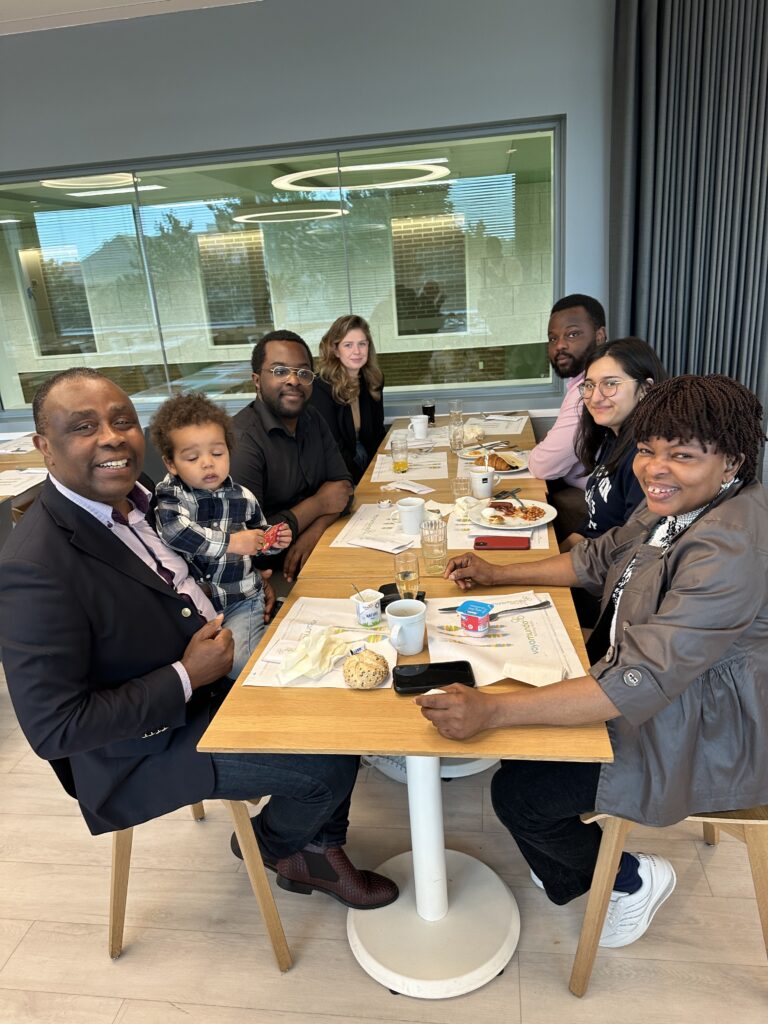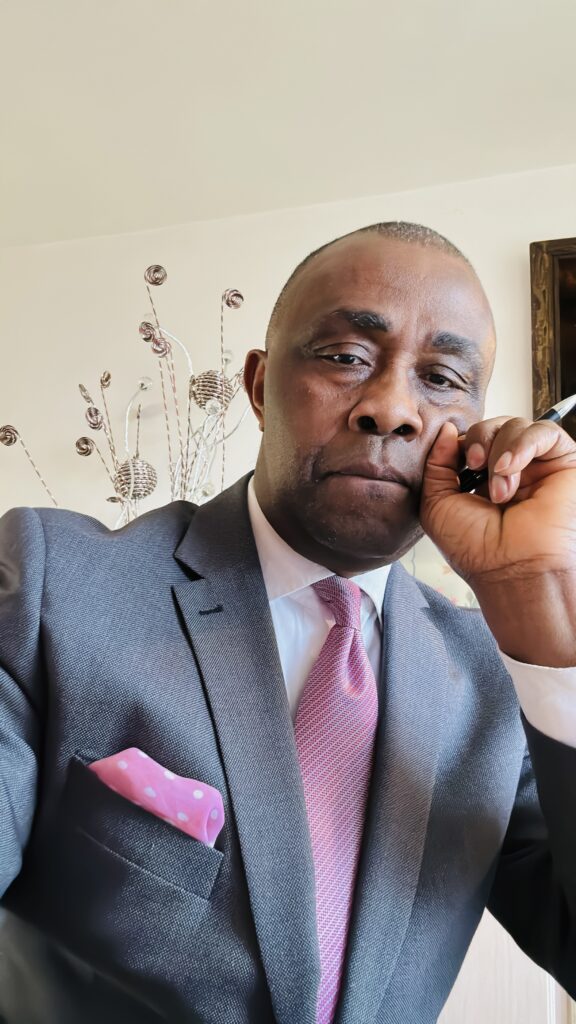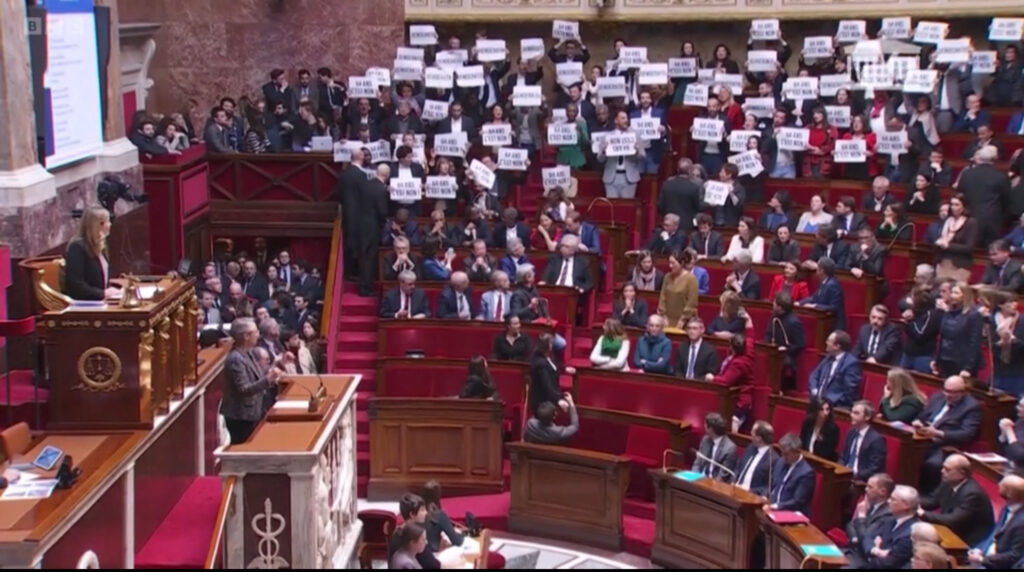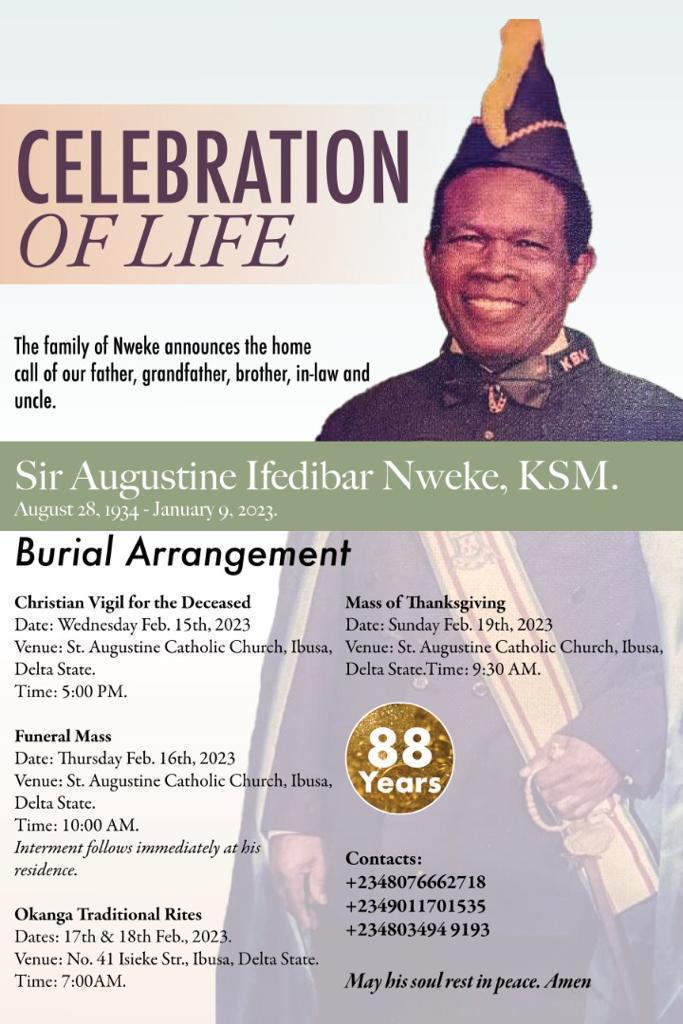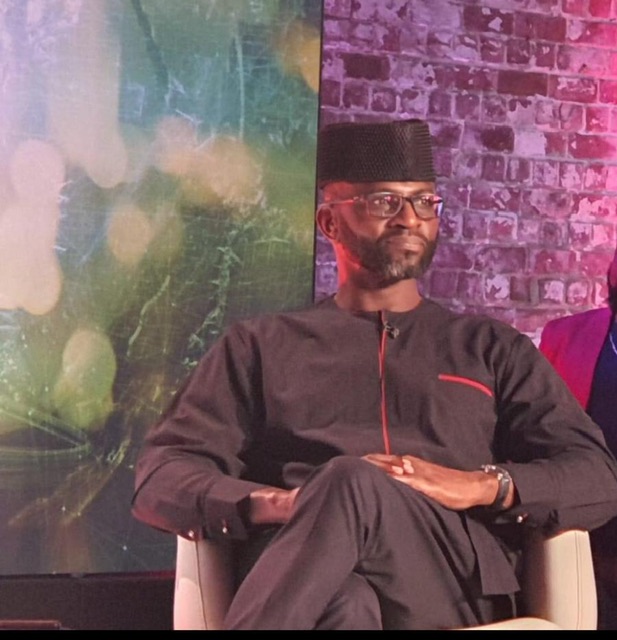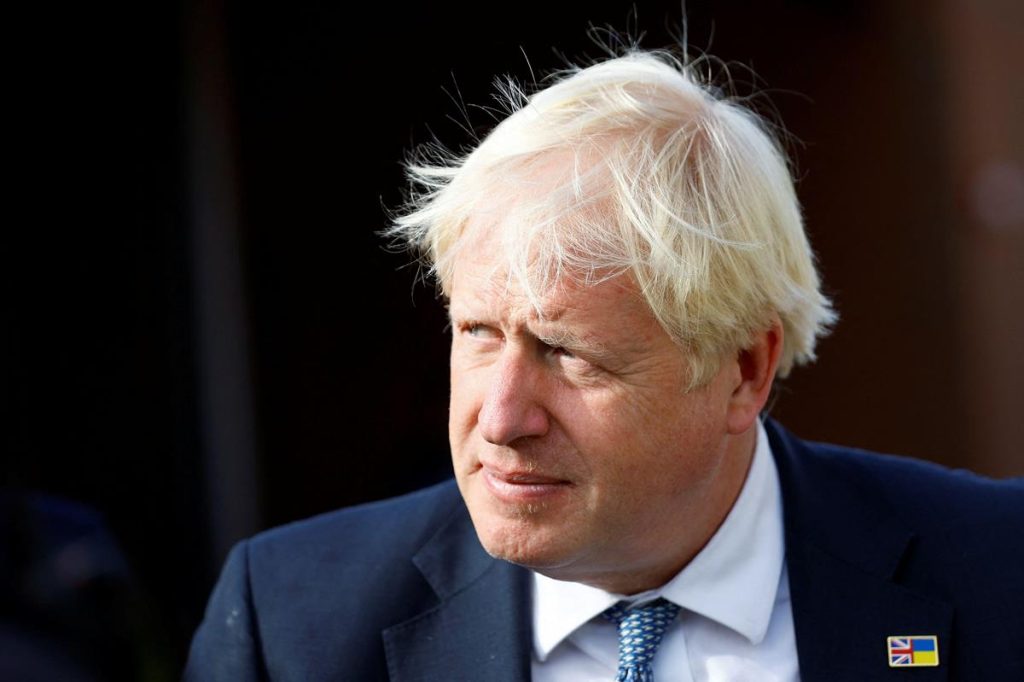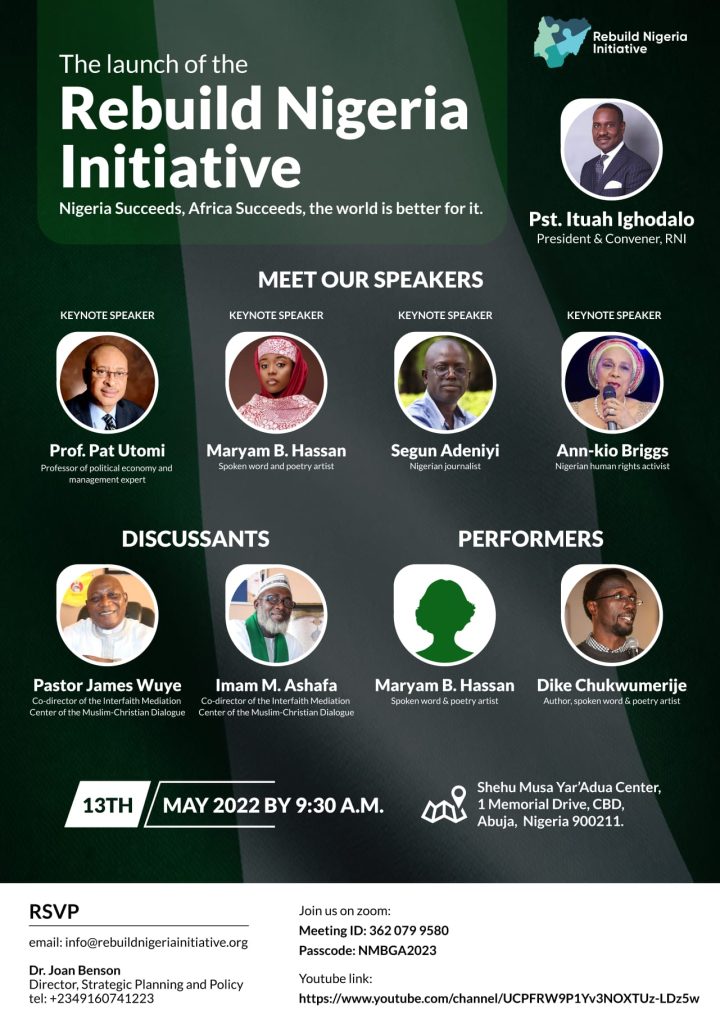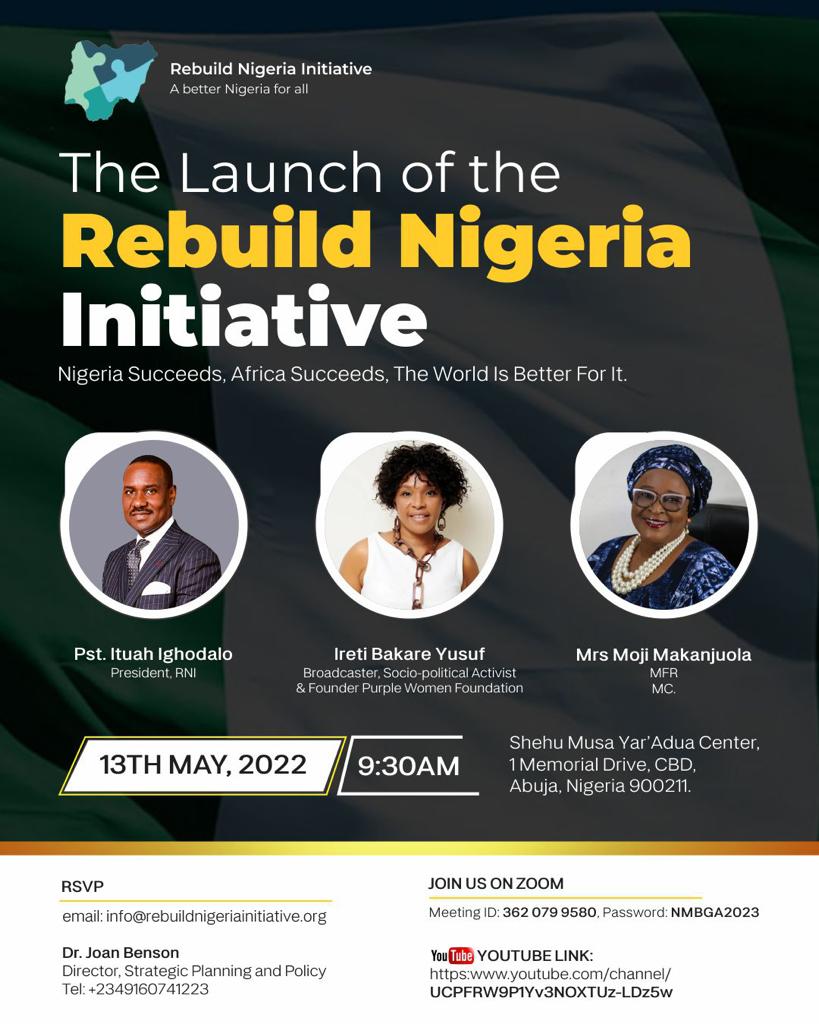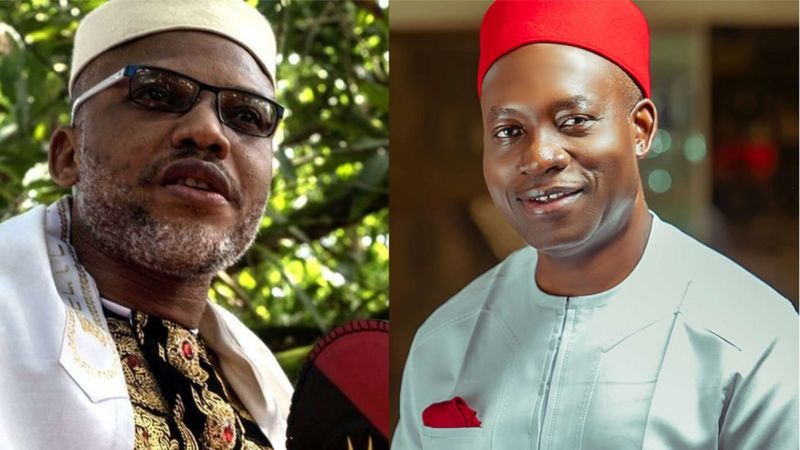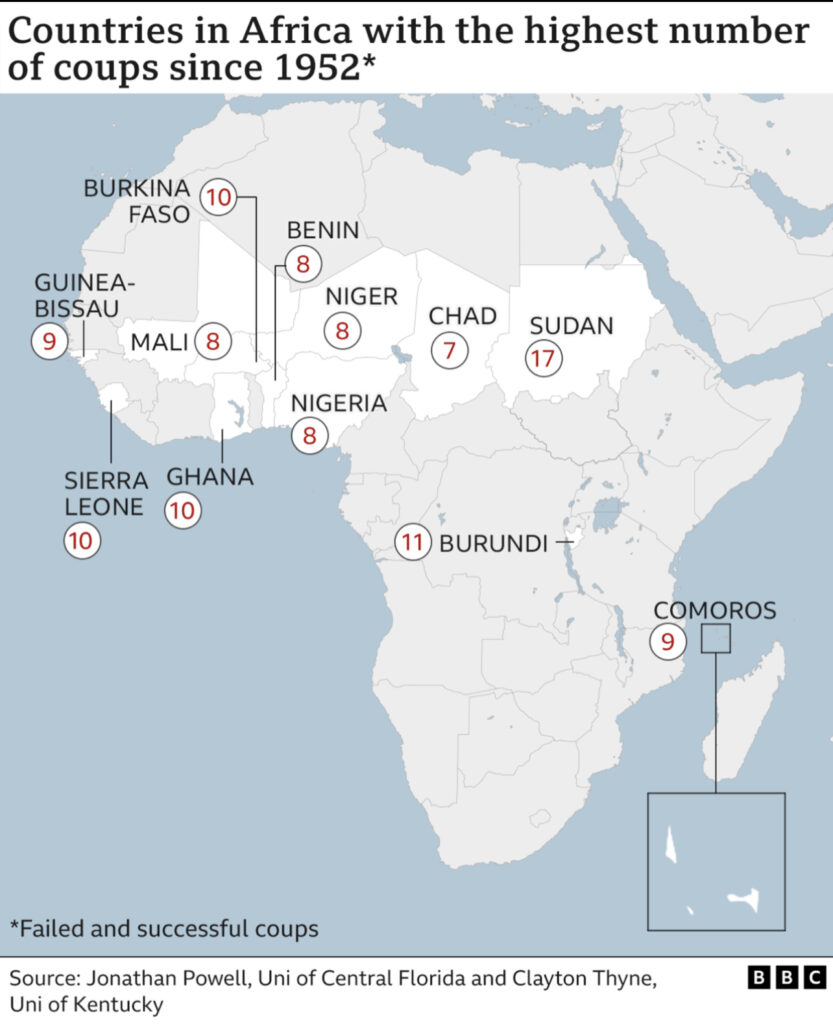
I was barely 6 months old when in January 1966, the first military seizure of power took place in my birth country Nigeria. Some 34 years thereafter, military rule held sway in Africa’s most populous nation. To a large extent, I could be rightly described not only as a ‘Warchild’ but also as a product of a military environment. To say the least, it is traumatising and perhaps psychologically deforming.
Outside textbook theories of the meaning of democracy, our generation of Nigerians only started learning in practical terms what true democracy is all about as from 1999. Some of us are adaptable but for very many of us, in our mid to late 30s, it was too late. Brut force, getting things the hard way, lack of inner peace, violence, aggression, and other vices had formed or deformed our psych. But not all of us!
While some of us believe these vices are normal, others consider them grossly abnormal. So we understand it when both young and old take to the streets embracing the military because they said they are the new messiahs that will bring them the good life, the prosperity that has eluded them for way too long.
When Bob Marley of blessed memory talked about chasing away the crazy baldheads out of the town, I now know that he was talking of no other than these African leaders that have determined that the children of Africa will not see or know peace.
The list is a mixed bag ranging from the often revered Gadaffi, who took over power by force, hung in there for 42 years and died in there rather than give power up. We can’t forget Omar Bongo either who stayed in for over four decades. Obiang is doing 44 years and counting while preparing his son, the Vice President to step in at any given moment. What about Museveni who has spent 38 years so far and won’t tolerate any opposition? We can’t loose sight of Paul Biya, can we? He’s been around as President for over 40 years and counting. But for a 4 year hiatus, Dennis Sassou Nguesso has held sway for 39 years. There are also the emerging oligarchs like Paul Kegame and Ali Bongo who have by one crooked means or the other have made the rulership of their fatherland a personal estate.
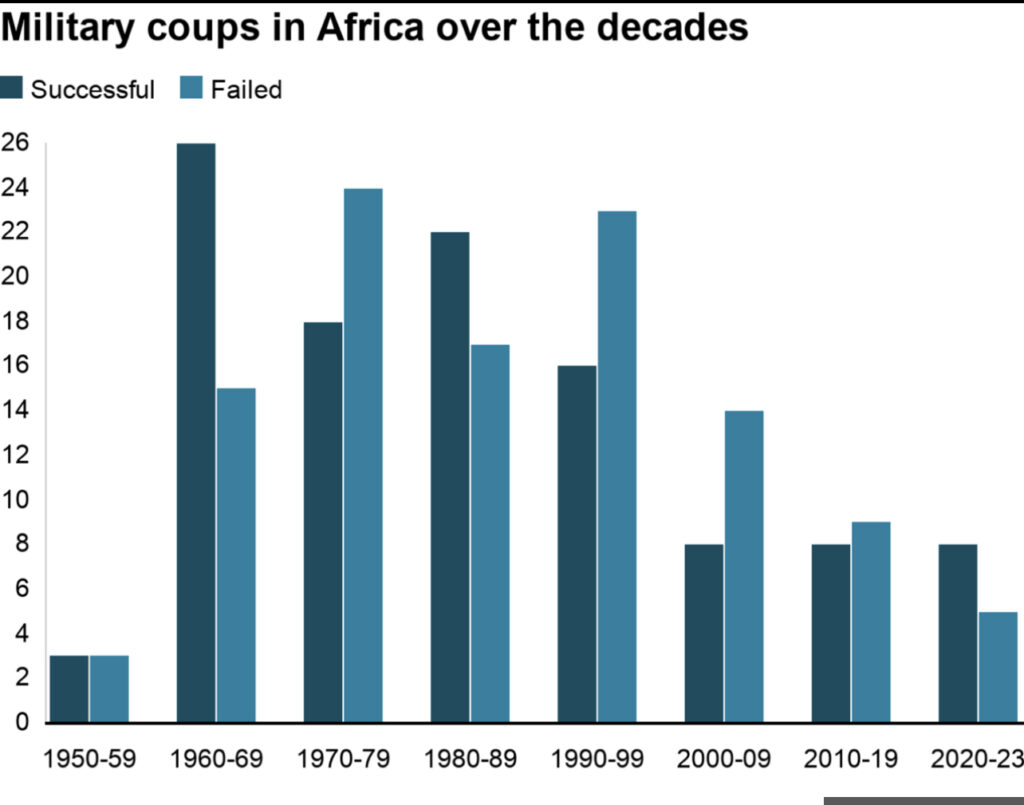
Do these abnormalities justify disruption of constitutional orders? No, not at all! While some of us maintain that coup is and remains an aberration, we understand the psychology of those who applaud the military boys for stepping in. The cliché that those who make peaceful coexistence difficult only makes violent dissent inevitable, comes handy here.
In all of these, some interesting queries around reshaping the world order are emerging. A couple of key emerging question are how well for Africa Western democracy is for the continent given that it was a forced system? Also how do you deal with neo-imperialism and its impact in retarding Africa’s growth? These are all germane issues worthy of interrogation but they should not be mixed up with the menace of power seizure with the barrels of the gun. These must be handled in isolation from the other even as closely related as they are.
To demonstrate the nature of coup as an aberration, there’s often a denial by ‘coupists’ that they committed a coup. An instance was in 2017 when in Zimbabwe, a military takeover brought Robert Mugabe’s 37-year rule to an end. Major General Sibusiso Moyo, who was one of the masterminds of the operation, appeared on television at the time, flatly denying it was a military takeover. In April 2021 after the death of the Chadian leader, Idriss Déby, the army installed his son as interim president, leading a transitional military council. His opponents called it a “dynastic coup” not a classic coup!
Two US researchers, Jonathan Powell and Clayton Thyne probably has the most plausible explanation for this denial when they concluded that coup leaders almost invariably deny their action was a coup in an effort to simply appear legitimate. One illegitimacy can not correct another or a hundred illegitimate actions.
My realist friend and comrade, Adetunji Omotola’s bluntness on this matter of coup in Africa is a truism that stirs us all in the face when he asserted that he sees all dictatorships collapsing this year with military take over of power. Irrespective of which side of the divide one is, there is perhaps a silent realisation that the soldiers might have naturally been assigned the role by Bob Marley of chasing the crazy baldheads out of town.
